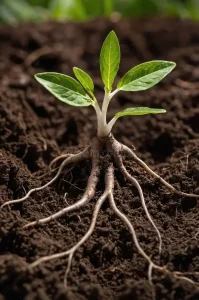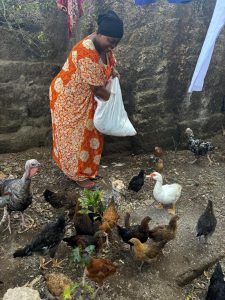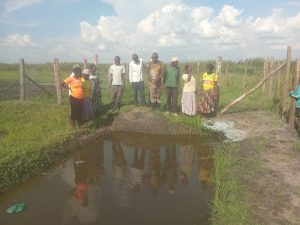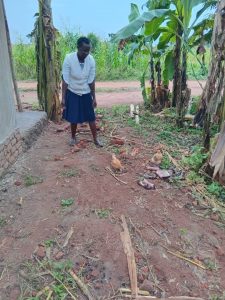In the rural and dryland regions of Kenya and Uganda, family farmers face daily challenges. Farmlands are often barren, water runs off, pests and diseases are widespread, and climate change makes crop failure more severe. As a result, yields have fallen from 2,500 kilograms to just 200 kilograms per acre each year.
These challenges affect entire communities—children face malnutrition, women and youth lose farming jobs, and families struggle to put food on the table.
The root of the problem is clear: farmers lack knowledge in regenerative farming, skills in climate resilience, and access to AI-driven tools to manage pests, diseases, and unpredictable weather. Civicom Aid is on the ground responding.
These solutions transform communities. Families create farming-related jobs, reduce hunger and malnutrition, children stay in school, and communities thrive with reliable food and economic opportunities.
You can make a real difference as a donor, partner, or volunteer. Your support helps farmers gain the skills and tools they need to build sustainable farming practices and secure a brighter future for their families.
Regenerative Farming

In Turkana’s rural drylands, family farmers face daily struggles. Farmlands are degraded, droughts persist, and pests and diseases spread rapidly. Water runs off instead of soaking into the soil, evaporation is high, and many farmers abandon their fields. Annual yields have collapsed from 2,500 kilograms to just 200 kilograms per acre. These challenges hurt entire communities—children face malnutrition, women and youth lose farming jobs, and families struggle to put food on the table.
The root problem is clear: farmers lack knowledge in regenerative farming, climate resilience skills, and access to AI-driven tools for managing pests, diseases, and unpredictable weather. Civicom Aid is on the ground responding.
Through regenerative farming, families restore soils, build bunds, and use vegetative propagation to increase water infiltration, recharge groundwater, and expand vegetation cover. With your support as a donor, partner, or volunteer, these solutions bring lasting food security and hope.
Vegetative Propagation

In many rural dryland areas, trees are lost and farmlands lie exposed to scorching sunrays. Families endure poor harvests, shrinking incomes, and worsening food insecurity, while climate change makes recovery even harder.
Civicom Aid equips farmers with vegetative propagation—a simple, low-cost technique of regrowing trees from stumps, roots, or leaves. With survival rates of up to 98%, farmers restore their land affordably without relying on costly seedlings or machinery.
This approach restores tree cover, enriches soils, conserves water, and increases harvests. It lifts family incomes, regenerates ecosystems, and strengthens resilience against droughts and floods. By 2030, we aim to expand tree cover across 10,000 hectares of farmland and build climate-smart communities.
Your support makes this transformation possible. As a donor, partner, or volunteer, you can help farmers restore land, secure food, and protect the environment for future generations.
AI in Farming

In many rural areas, family farmers work without the guidance of agricultural extension officers or reliable weather forecasts. Crop pests and diseases spread unchecked, and unpredictable weather strikes without warning. The result is falling yields, rising losses, and worsening food insecurity that threatens entire communities.
Civicom Aid is changing this. We empower farmers with AI-driven tools that detect pests, diagnose crop diseases with prescriptions, and forecast weather with accuracy. With these innovations, farmers gain timely solutions to act early, protect harvests, and adapt to climate change—leading to higher yields, lower costs, and stronger food security.
By 2035, we aim to equip 120,000 farmers with AI-driven farming skills. Your support as a donor, partner, or volunteer makes this possible—helping farmers access transformative technology, build smarter farms, secure livelihoods, and create resilient, future-ready communities.
Bunds Propagation

In Turkana’s drylands, rainfall is scarce and quickly lost through runoff. Soils remain dry, leaving the land unable to sustain crops or vegetation. Seeds fail to germinate, once-productive lands turn barren, and families face poor harvests, shrinking grazing areas, and deepening food insecurity.
Civicom Aid mobilizes communities to design and build half-moon bunds that capture and hold rainwater. These low-cost earth structures use simple tools and community labor, making them both affordable and sustainable for farmers.
Bunds slow water runoff, improve infiltration, and trigger dormant seeds to sprout. They regreen landscapes, raise tree survival rates to 95%, enrich soils, and restore biodiversity—transforming barren land into fertile farmland.
By 2030, we aim to restore 2,000 hectares of degraded drylands. Your support as a donor, partner, or volunteer makes this possible—helping communities secure food, conserve nature, and protect future generations.
Mun Poultry Farm

Evalyne Chemutai, a mother of five in Kenya, began Mun Poultry inside her kitchen with two hens and one cock, armed with Civicom Aid training and hope for a better future.
In her first rounds, her poultry increased to 73 and even shared 10 with a widow to start her own poultry project—proving that one small beginning can spark change for many.
Each morning, Evalyne rose early to feed, check, and care for her chicks with dedication. But soon, predators struck: crows from above, snakes and rats from below, and thieves from the sides, reducing her flock to 18.
Discouraged, she now seeks a one-time support of USD 388 to concrete the floor, reinforce walls, and install mesh. With this, her poultry can grow to 1,000 birds, create 10+ jobs, and lift families out of poverty.
Women Corps

The Women Corps, a women-led initiative in Kyani, Nyanza, Uganda, was founded in 2022 and brings together 60 committed members. All members are unemployed and depend solely on farming for food and income.
Despite their determination, they face severe challenges: poor-quality fish, inadequate feed, and constant threats from thieves, birds, snakes, frogs, and waterborne diseases. Limited access to markets prevents them from selling at fair prices, resulting in food insecurity, low incomes, and stunted project potential.
With training from Civicom Aid, the Women Corps introduced an integrated fish–crop farming system. They dug fishponds, collected stray fish from Naigombwa Swamp, and began cultivating crops. Their vision is simple yet powerful: feed families, sell surplus for income, create jobs for women, and strengthen community food security.
To overcome current barriers, the Women Corps urgently need USD 4,200 for quality feed, healthy fingerlings, pond security, and training in fish management, disease control, and marketing. These resources will build a sustainable fish–crop system, generate income, and create jobs.
Miria Poulptry Farm

Miria Nakatabazi, a mother of four, began Miria Poultry Farm inside her kitchen with only one hen and one cock. With training from Civicom Aid and driven by hope, she turned her skills into an opportunity to uplift her family and inspire her community.
Her hen first laid 22 eggs, hatching 19 chicks, and later laid 21 eggs, hatching 17 more—raising 36 chicks in total. Excited by her progress, she invited a widow to join and gave her 7 chicks to start her own project.
But challenges struck. Kite birds from above, rats from ground, thieves and wolves from sides, and chicken fleas from withing reduced her flock to just 8. To protect her farm, Miria seeks a one-time support of USD 315 for flooring, wall reinforcement, flea control, and mesh wire. With this, her farm can grow to over 800 birds, empower 7 widows, create 9 jobs, and strengthen community resilience.
